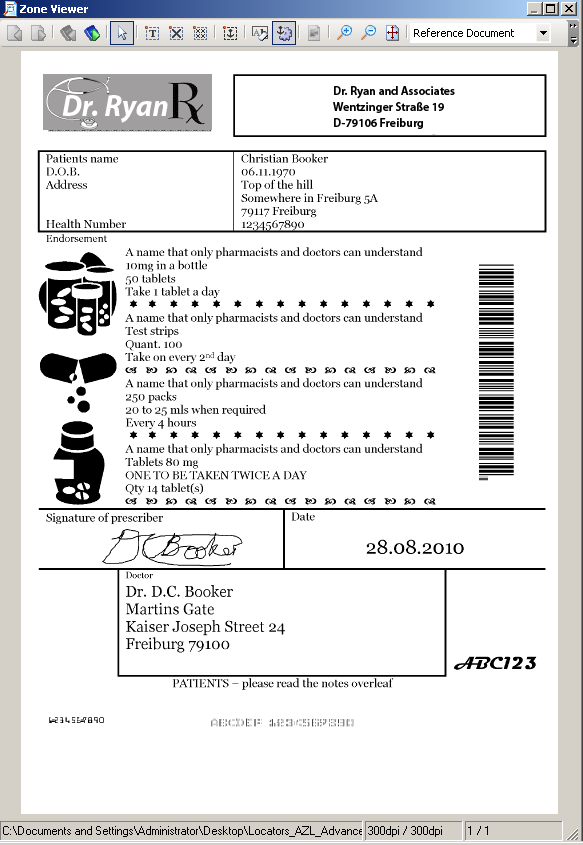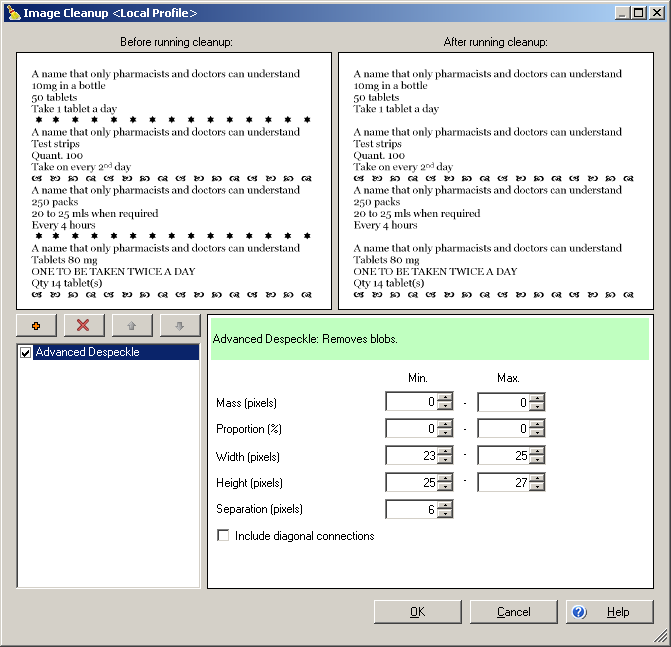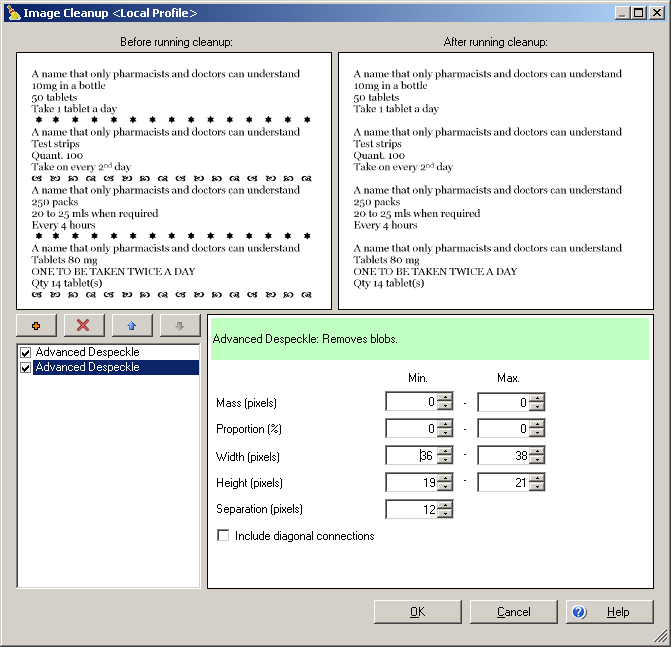Remove Repeating Patterns
The following image shows an example of a prescription document that contains some repeating patterns and graphics.

When recognition is performed for this document, it returns the following result:
A name that only pharmacists and doctors can understand lomg in a bottle 50 tablets Take 1 tablet a day *************** A name that only pharmacists and doctors can understand Test strips Quant. 100 Take on every 2"d day es B B) 02 es B B) 02 es B B) 02 es B B) 02 A name that only pharmacists and doctors can understand 250 packs 20 to 25 mls when required Every 4 hours *************** A name that only pharmacists and doctors can understand Tal)lets 80 mg ONE TO BE TAKEN TW[CE A DAY Qty 14 tablet(s) es B B) 02 es B B) 02 es B B) 02 es B B) 02
These results are not very good because the repeating patterns and images are interfering with the recognition results.
The following example to show how repeating patterns can be removed from an image using two layered Advanced Despeckle image cleanup methods. One for the repeating stars and another for the repeating gif images.
You can improve extraction results for documents that contain repeating patterns or unwanted graphics by following these steps:.
- Add and Advanced Zone Locator for the class the processes documents with the unwanted blobs.
- Add a reference document to the Advanced Zone Locator.
-
Draw a text
zone around the area that contains the unwanted box.
The Zone Properties window is displayed.
-
Give a descriptive name to the zone so it is easy to understand
its purpose.
For example, "Repeating pattern removal".
-
On the
Image Cleanup tab, click
the
Properties button in the
Image Cleanup group.
The Image Cleanup Profile window is displayed.
-
On the
Add Image Cleanup Method window, click
Add and then select
Advanced Despeckle from
the list.
The Image Cleanup window displays the Advanced Despeckle settings in the bottom right pane and loads the image into the top two panes for testing cleanup.
- Adjust the zoom level and view of the image so the zone that contains the repeating pattern is fully visible inside the viewer.
-
Set all settings to zero.
This removes everything from the image displayed in the "After running cleanup" viewer so you can easily figure out the pixel sizes of the repeating pattern.
- Start increasing the Width (pixels) Max. field until the repeating pattern you want to remove is deleted from the image. Record and label this number on a piece of paper so you can reference it later at a later time.
- Reset all settings to zero and start increasing the Width (pixels) Min. field until the repeating pattern is fully displayed on the image. Record and label this number on a piece of paper so you can reference it at a later time.
-
Reset all settings to zero and start increasing the
Height (pixels) Max.
field until the repeating pattern you want to remove is deleted from the image.
Record and label this number on a piece of paper so you can reference it later at a later time.
-
Once again, reset all settings to zero. This time, start
increasing the
Height (pixels) Min.
field until the repeating pattern is fully displayed on the image. Record and
label this number on a piece of paper so you can reference it later at a later
time.
You should now have four numbers. Two for the width, and two for the height.
- Type the recorded numbers into their respective fields.
- Optionally, increase the Separation (pixels) value if content that is needed is removed.
- Optionally, adjust the mass and proportion values to further refine image cleanup.
- Optionally, if there are more than one types of repeating patterns, repeat steps 6 through 15 to add another layer to remove the different pattern.
- Test the OCR results.
- Save the changes to your project.

